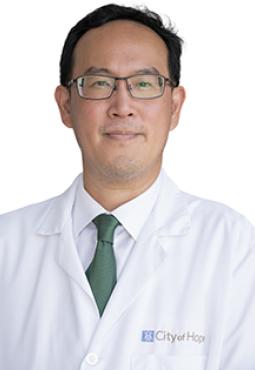“Cancer” is a very heavy word. For people who hear this word from their doctor, it can bring up a range of emotions, from anxiety to anger. Everyone recognizes the seriousness of this word, and it instantly receives the attention it deserves.
There is one rare form of cancer that develops from the soft tissues of the human body. In English, it is called “sarcoma.” In Chinese, it is called “rou liu,” which translates into “flesh tumor.” Cancer of the breast is called “ru xian ai” "breast cancer"); cancer of the prostate is called “qian lie xian ai” ("prostate cancer"). So why isn’t sarcoma called “rou ai” ("flesh cancer") instead of “rou liu” ("flesh tumor")? It is clearly malignant, more than just a “flesh tumor.” In fact, compared to the more common cancers, sarcoma can be just as aggressive, if not more so. Sarcoma is indeed a tumor of the flesh, but sarcomas also grow, invade, spread and can even take a person’s life — exactly what cancer does.
'It is critical to get a referral early to a sarcoma specialist for treatment.'
Sarcoma can be more deceiving than most cancers. There is the saying, “When you hear the sound of hooves, you don’t think of zebras.” Most patients and doctors are not thinking of sarcoma or expecting to find sarcoma. It is very rare, representing only 1% of all cancers in adults. There are no obvious risk factors. Smoking or infections, such as hepatitis C, have no relationship with sarcoma, unlike lung or liver cancer, for example. There are no screening tools, such as a mammogram or colonoscopy, and no blood test that can detect sarcoma. Frequently, patients with a new diagnosis of sarcoma will have very few symptoms, vague symptoms or no symptoms at all. Sarcoma often first shows up simply as a painless mass that is dismissed as a benign lipoma or cyst — a flesh tumor.
A Complex Cancer
Correct diagnosis of sarcoma is important but can be complicated. If there is suspicion of sarcoma, an MRI or CT and, ultimately, a needle biopsy should be done. Even with these tests, however, general radiologists or pathologists who are not specialized in sarcoma may still make the wrong diagnosis. This is because there are around 100 different types of sarcomas based in part on the tissue the cancer cells are believed to originate from. Liposarcoma is a cancer of fat; leiomyosarcoma and rhabdomyosarcoma are cancers of muscle. There are many more types with unique behaviors and outcomes. In fact, sarcoma is not just one cancer but can be regarded as a group of cancers.

Once diagnosed, the treatment of sarcoma is as intense as any other cancer treatment. For sarcoma that has not spread to other organs, surgery is the standard method of treatment. Surgeries for sarcoma can be some of the most complex operations performed in the human body. In the back of the abdomen, where sarcomas can develop and involve critical organs and major blood vessels, sarcoma surgery can be very high risk, take many hours and involve multiple teams. For sarcoma that has spread, surgery is usually no longer feasible, and chemotherapy is prescribed. The options for drug therapy vary depending on the specific type of sarcoma. In many cases, sarcoma treatment can involve a combination of surgery, radiation and chemotherapy or drug therapy — much more than what you would expect for just a “flesh tumor.”
Sarcoma is best managed by experts who specialize in this cancer, by those who see it every day. It is critical to get a referral early to a sarcoma specialist for treatment, or at the very least a second opinion on the diagnosis to determine the best treatment plan. It is common for sarcomas to return even when the patient is believed to be “cured.” This is caused by, and made worse by, patients delaying their treatment, incorrect treatment by inexperienced nonspecialists and misdiagnosis.
Patients should advocate for themselves, and the first step is education. For our Chinese community, of which I am a part, we need to be aware of sarcoma, its complications and grave risks, and appreciate that despite its Chinese given name, it deserves all the attention of any other cancer.
Surgical oncologist William Tseng, M.D., is an associate clinical professor in the Division of Surgical Oncology, Department of Surgery, at City of Hope’s Los Angeles campus. He specializes in soft tissue sarcomas. A version of this essay recently appeared in the Chinese-language newspaper World Journal, which is circulated throughout the United States.
